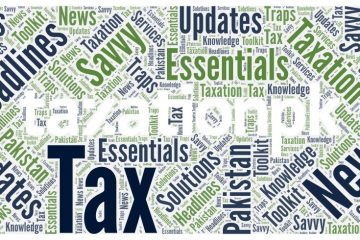This article delves in deduction of tax at source on payments as per Income Tax Ordinance, 2001 made for the supply of goods and services. This is an important tool for the government to collect taxes and prevent tax evasion.
Who is required to deduct tax at source?
Any person who is responsible for making a payment for the supply of goods or services is required to deduct tax at source. This includes individuals, companies, partnerships, and associations of persons.
When is tax deducted at source?
Tax is deducted at source at the time of making the payment. This means that the person making the payment is required to deduct the tax from the amount of the payment before making the payment to the recipient.
How is tax deducted at source?
The person making the payment is required to deduct the tax at source by using the following formula:
Tax deducted at source = Amount of payment * Rate of tax deductionFor example, if the amount of payment is Rs. 100,000 and the rate of tax deduction is 5%, then the amount of tax deducted at source will be Rs. 5,000.
What are the exemptions from tax deduction at source?
There are a number of exemptions from tax deduction at source. These exemptions include:
- Payments made to government departments and agencies.
- Payments made to non-residents.
- Payments made for the supply of goods or services that are exempt from tax.
How is the tax deducted at source deposited with the government?
The person deducting the tax at source is required to deposit the tax with the government within 15 days of withholding. The tax can be deposited online or through a bank challan.
What are the penalties for non-compliance with Section 153?
The following are the penalties for non-compliance with Section 153:
- A penalty of 10% of the tax that was not deducted at source.
- Interest on the tax that was not deducted at source.
- Prosecution in a court of law.
Conclusion
Section 153 of the Income Tax Ordinance, 2001 is an important tool for the government to collect taxes and prevent tax evasion. It is important for all persons who are responsible for making payments for the supply of goods or services to be aware of their obligations under this section.







I know him my nmbr is add ntn